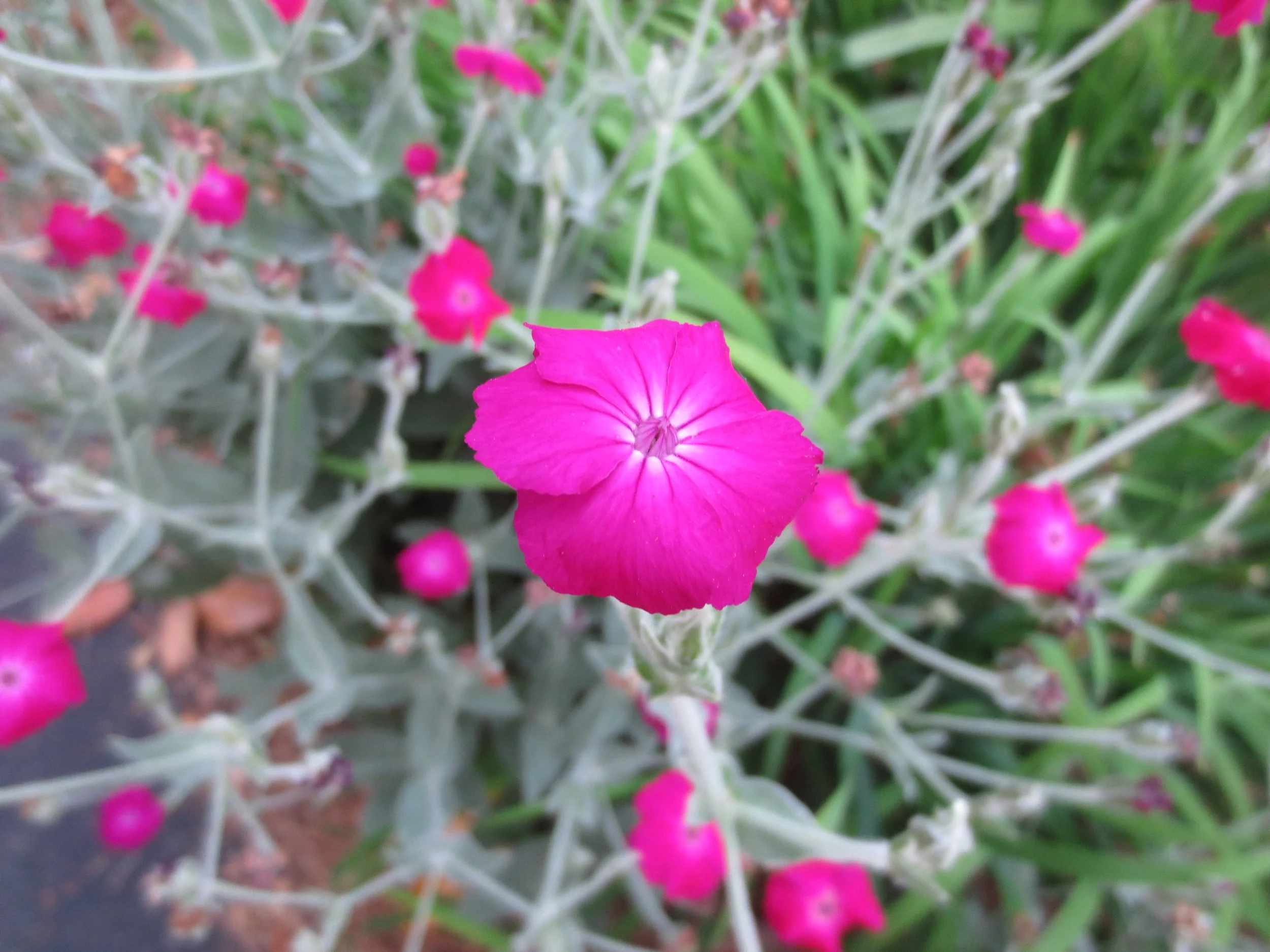Mock Orange, Philadelphus coronarius (pronounced fill-uh-DELL-fus core-uh-NAIR-ee-us), is a deciduous shrub grown for its sweet scent. When not it bloom, it is rather homely. Its stems are stiffly upright or occasionally, arching. Mature size is ten feet tall, eight feet wide. With time, the shrub becomes dense and twiggy. Flowering is on previous year’s limbs, so prune selected stems off near ground level immediately after flowering to force new growth for the following year. The bloom season occurs in May or June, and lasts several weeks.
Mock Orange is hardy in zones 4-8. It prefers full sun to part shade, and moist, well-drained soil, although it is somewhat adaptable. It prefers neutral to alkaline soil. Established plants withstand limited drought. Its white flowers make Mock Orange an ideal selection for a moonlight garden, where its intoxicating scent compensates for its unremarkable appearance. Fragrance is more pronounced in the evening.
Mock Orange is easily propagated from stem cuttings. Plants are somewhat deer resistant.
Philadephus coronarius has pure white, fragrant flowers.
The shrub has arching stems. Left to its on devices, it can become ungainly.
Note: A sharp-eyed reader noticed a mistake in last week’s blog. Amsonia hubrechtii is native to Arkansas, not Arizona. My secret is revealed — I easily confuse state abbreviations. Thanks for the correction, Gentle Reader!


